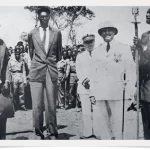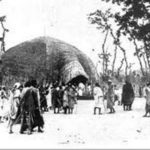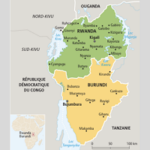What Role Has KingShip: An Analysis of the Umuganura Ritual of Rwanda
An Analysis of the Umuganura Ritual of Rwanda as presented in M. d’Hertefelt and A. Coupez, La royauté sacrée de l’ancien Rwanda
Divine kingship is one of the hoary tropes of precolonial Africa as seen by outside observers. Associated with myths of heroic (or mystical) origins and surrounded with exotic rituals of legitimation, African kings often seemed autocratic and autonomous from local control. But internal theories of king-ship present a different view. Even in Rwanda, one of the most powerful and centralized kingdoms of precolonial Africa, the king was subject to an elaborate “code of kingship”: the published version includes 4,766 lines in seven-teen separate rituals, all supposedly committed to memory by a powerful corporation of specialized ritual authorities. The ritual code makes it clear that, far from being omnipotent, the king was deeply embedded within a larger domain of kingship, and surrounded with intensely structured ritual prescriptions. This essay provides an example: an analysis of one segment of a much larger published ritual corpus, the annual First Fruits ceremony, umuganura. A structural analysis of the ritual shows the practices of king-ship to be much more complex and the concepts behind this protocol much more coherent and sophisticated than earlier outside assumptions imagined: the role of the king was to mediate between the essential values of culture, society, and ecology. Kingship was defined by culture, and the king’s sacrality —his ritual power—derived from his status as mediator between broader conceptual categories, rather than from any source autonomous from the world at large.
Many sources of African kingdoms portray the king as the dominant central figure of royal rituals of precolonial African states. This essay reevaluates the role of kingship as expressed in the rituals of umuganura, the First Fruits ceremony of Rwanda. By accounting for the ritual as a whole rather than focusing on the role of a single person, the analysis shows the monarch as having played a relatively passive role; rather than the source of power, he serves as an intermediary among the conceptual categories that defined the nature of kingship. The king’s “sacred” nature derived from his liminal status as mediating between larger conceptual categories that serve as the ultimate preoccupation of the ritual, much of which is concerned with people and places away from the central court. Ritual power emerges from the conjunction of these various enduring forces at work in the world rather than resulting from a person, or even from sources autonomous from the world at large. Thus “sacral kingship” was not always associated with a “divine king,” in the sense of a king drawing his power and legitimacy from supernatural forces outside society. Instead, he drew his sacrality from the representation of a set of internal relationships central to the concepts of the culture itself.
Lévi -Strausstells us that “the unconscious meaning of a myth [is revealed in] the problem it is trying to solve.”’ According to him, this problem is more reliably illustrated in the structure of the myth than in the plot, or the apparent “content” of the myth. This analysis addresses the “problem” at the core of a royal ritual of signal importance in the precolonial kingdom of Rwanda. In doing so, it will first identify elements fundamental to the ritual and to the problem of kingship—indeed to all of human society. It will then examine in detail the successive episodes of the ritual in order to explore the way in which these elements are structured (and restructured) to show their meaning in relation to each other (in relations that are at once ambiguous and interdependent). But first, some consideration must be given to the application to the ritual domain of an analytic technique most frequently used and elaborately developed in the study of myth.
https://uk.amateka.net/what-role-has-kingship-an-analysis-of-the-umuganura-ritual-of-rwanda/https://uk.amateka.net/wp-content/uploads/2021/03/monarchie.pnghttps://uk.amateka.net/wp-content/uploads/2021/03/monarchie-150x150.pngHistory of kingsSocial & cultureAn Analysis of the Umuganura Ritual of Rwanda as presented in M. d’Hertefelt and A. Coupez, La royauté sacrée de l’ancien Rwanda Divine kingship is one of the hoary tropes of precolonial Africa as seen by outside observers. Associated with myths of heroic (or mystical) origins and surrounded with exotic...BarataBarata rpierre@ikaze.netAdministratorAMATEKA | HISTORY OF RWANDA



